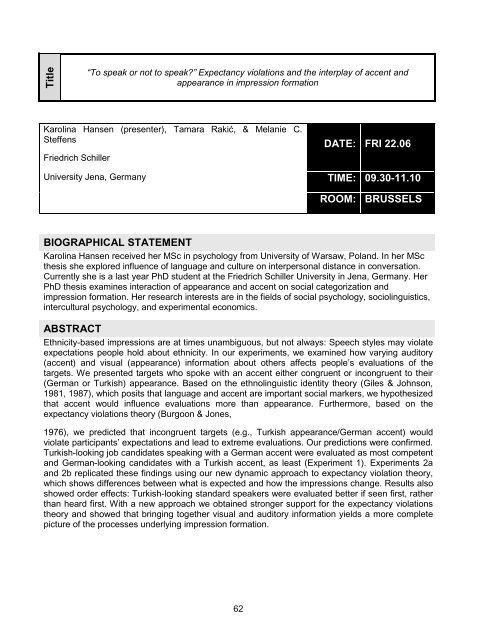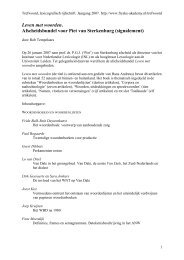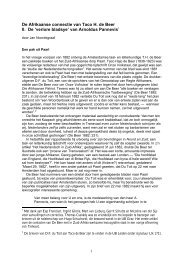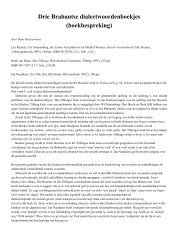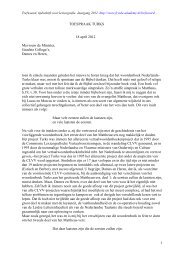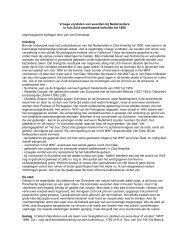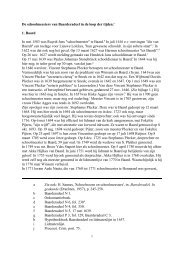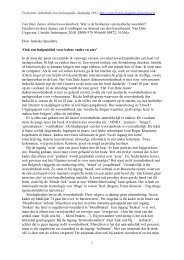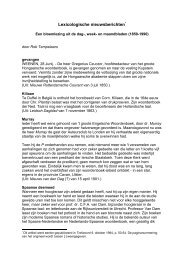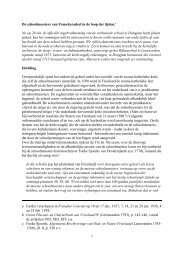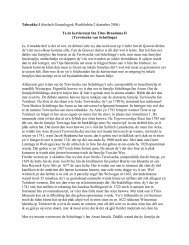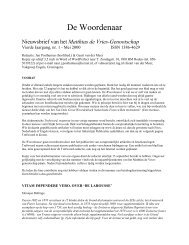Conference Book - Fryske Akademy
Conference Book - Fryske Akademy
Conference Book - Fryske Akademy
You also want an ePaper? Increase the reach of your titles
YUMPU automatically turns print PDFs into web optimized ePapers that Google loves.
Title<br />
“To speak or not to speak?” Expectancy violations and the interplay of accent and<br />
appearance in impression formation<br />
Karolina Hansen (presenter), Tamara Rakić, & Melanie C.<br />
Steffens<br />
Friedrich Schiller<br />
62<br />
DATE: FRI 22.06<br />
University Jena, Germany TIME: 09.30-11.10<br />
ROOM: BRUSSELS<br />
BIOGRAPHICAL STATEMENT<br />
Karolina Hansen received her MSc in psychology from University of Warsaw, Poland. In her MSc<br />
thesis she explored influence of language and culture on interpersonal distance in conversation.<br />
Currently she is a last year PhD student at the Friedrich Schiller University in Jena, Germany. Her<br />
PhD thesis examines interaction of appearance and accent on social categorization and<br />
impression formation. Her research interests are in the fields of social psychology, sociolinguistics,<br />
intercultural psychology, and experimental economics.<br />
ABSTRACT<br />
Ethnicity-based impressions are at times unambiguous, but not always: Speech styles may violate<br />
expectations people hold about ethnicity. In our experiments, we examined how varying auditory<br />
(accent) and visual (appearance) information about others affects people‘s evaluations of the<br />
targets. We presented targets who spoke with an accent either congruent or incongruent to their<br />
(German or Turkish) appearance. Based on the ethnolinguistic identity theory (Giles & Johnson,<br />
1981, 1987), which posits that language and accent are important social markers, we hypothesized<br />
that accent would influence evaluations more than appearance. Furthermore, based on the<br />
expectancy violations theory (Burgoon & Jones,<br />
1976), we predicted that incongruent targets (e.g., Turkish appearance/German accent) would<br />
violate participants‘ expectations and lead to extreme evaluations. Our predictions were confirmed.<br />
Turkish-looking job candidates speaking with a German accent were evaluated as most competent<br />
and German-looking candidates with a Turkish accent, as least (Experiment 1). Experiments 2a<br />
and 2b replicated these findings using our new dynamic approach to expectancy violation theory,<br />
which shows differences between what is expected and how the impressions change. Results also<br />
showed order effects: Turkish-looking standard speakers were evaluated better if seen first, rather<br />
than heard first. With a new approach we obtained stronger support for the expectancy violations<br />
theory and showed that bringing together visual and auditory information yields a more complete<br />
picture of the processes underlying impression formation.


